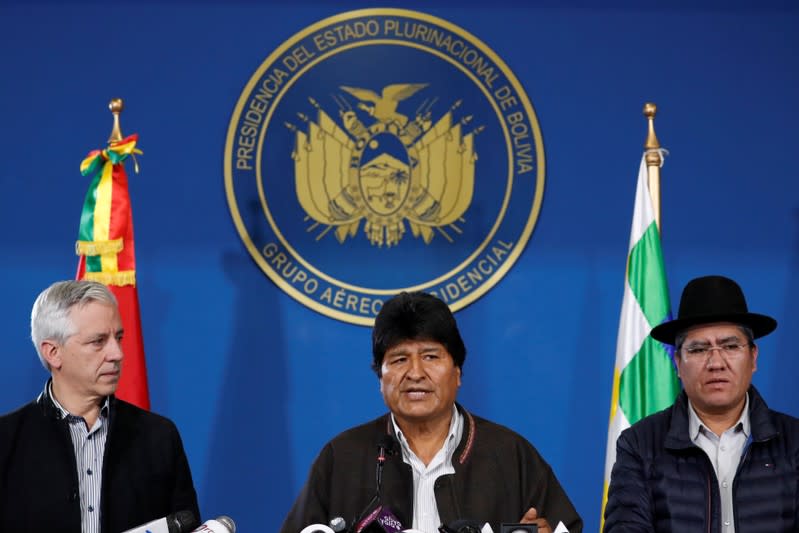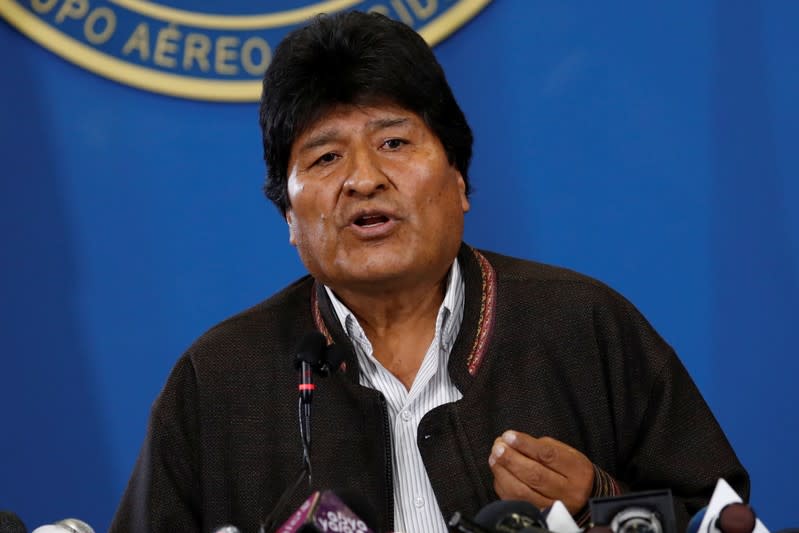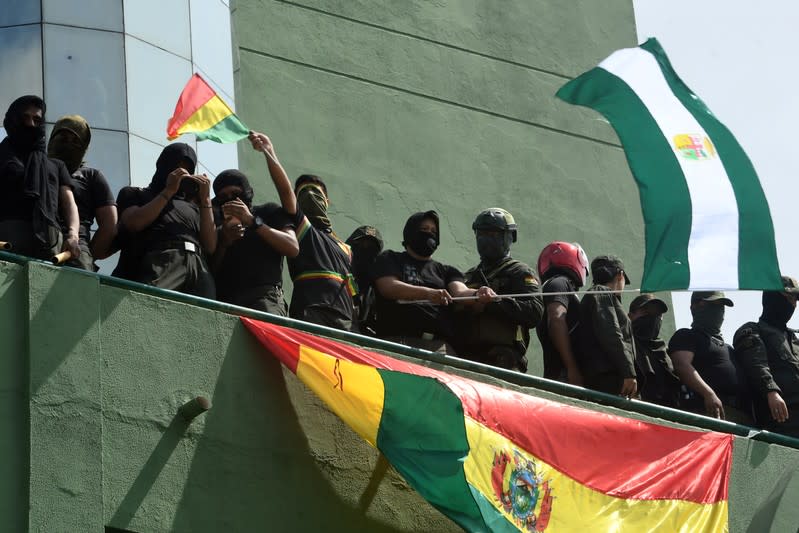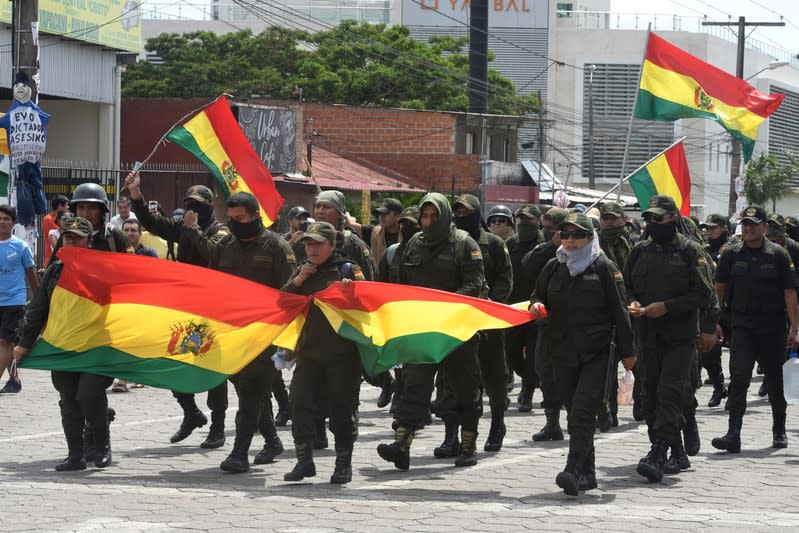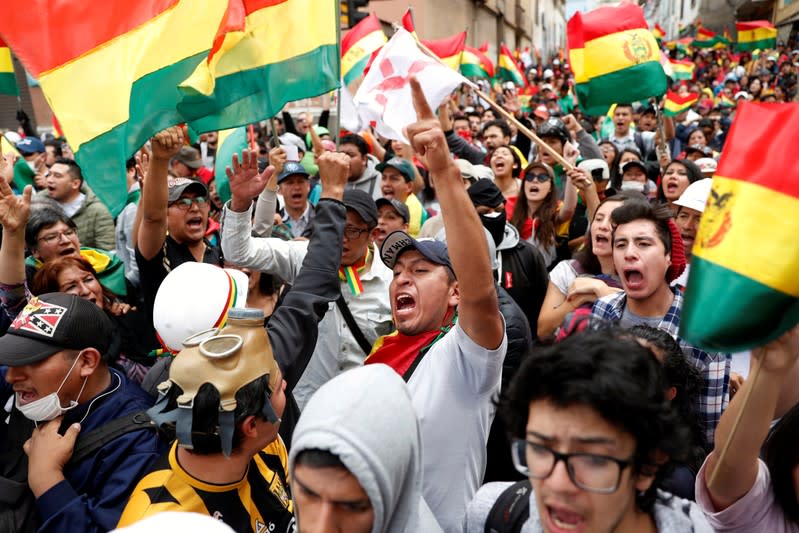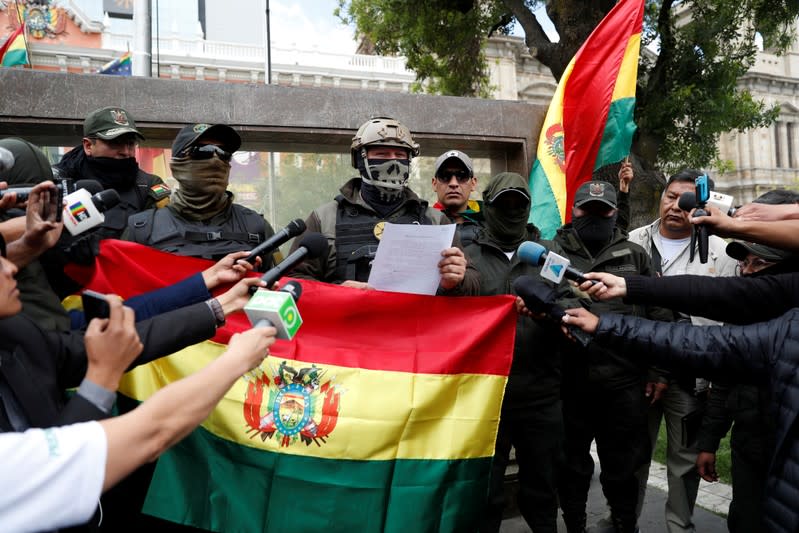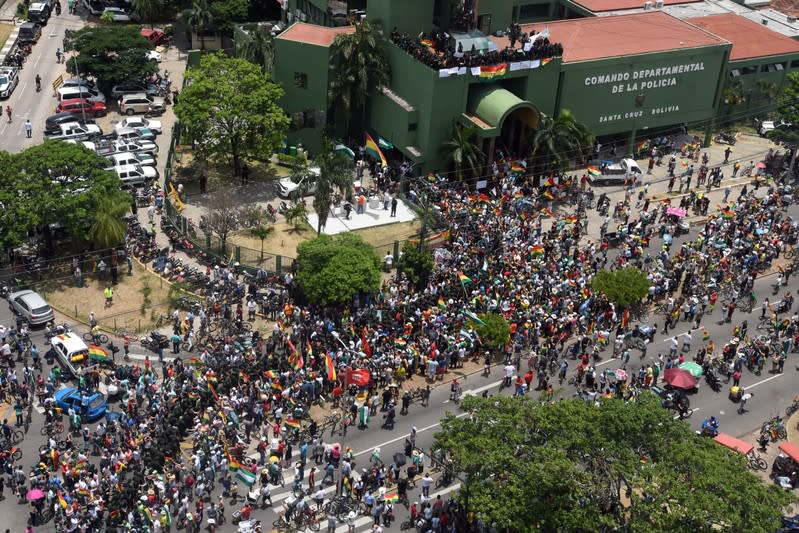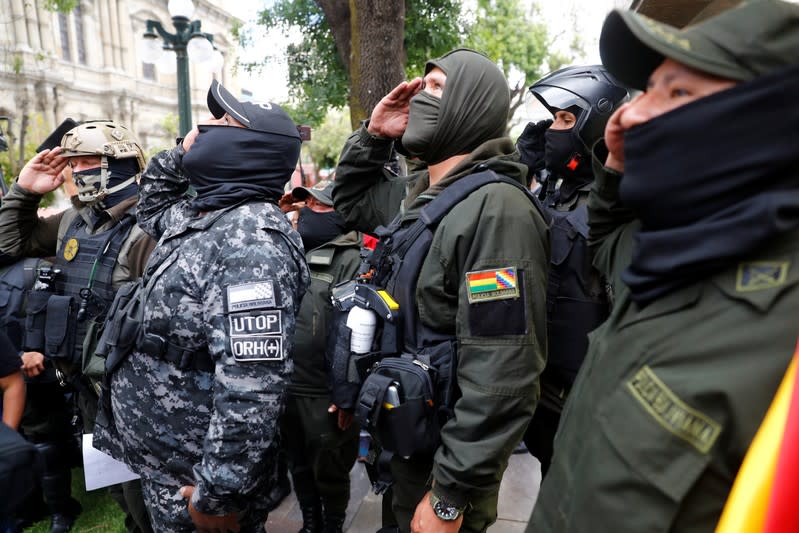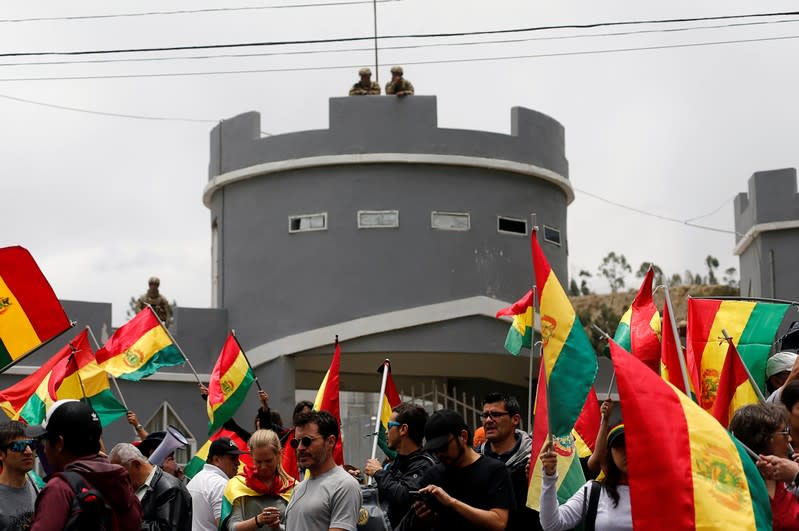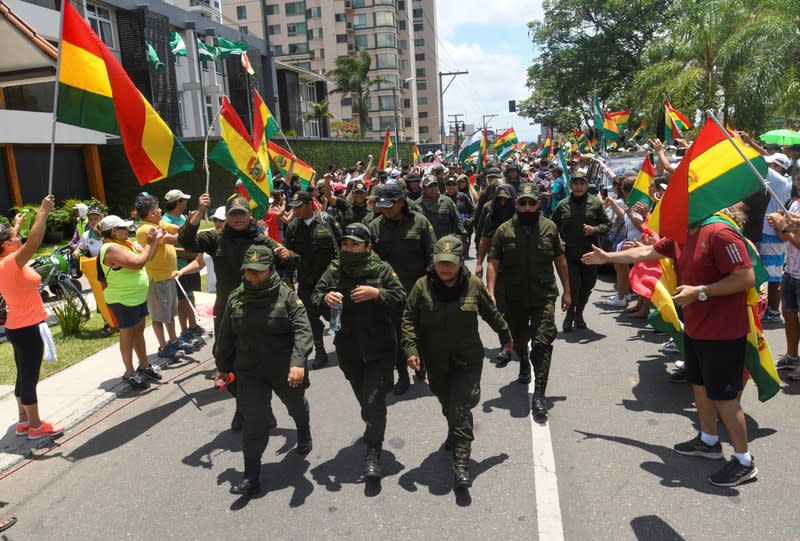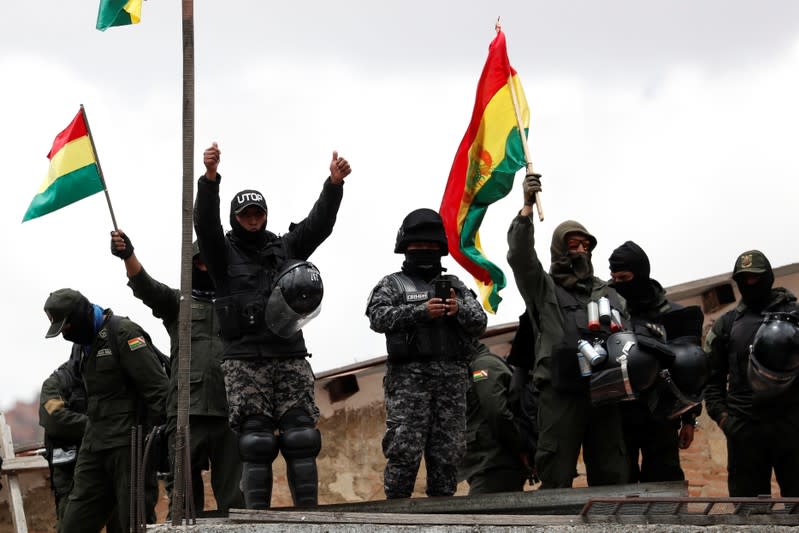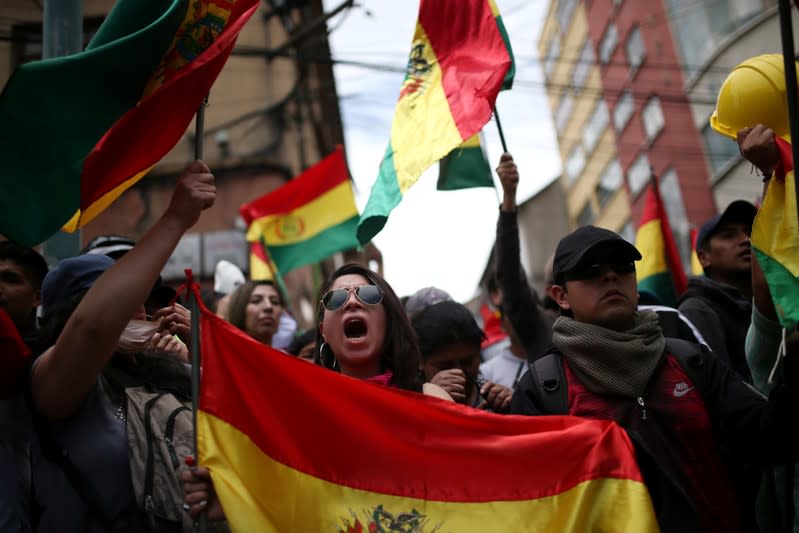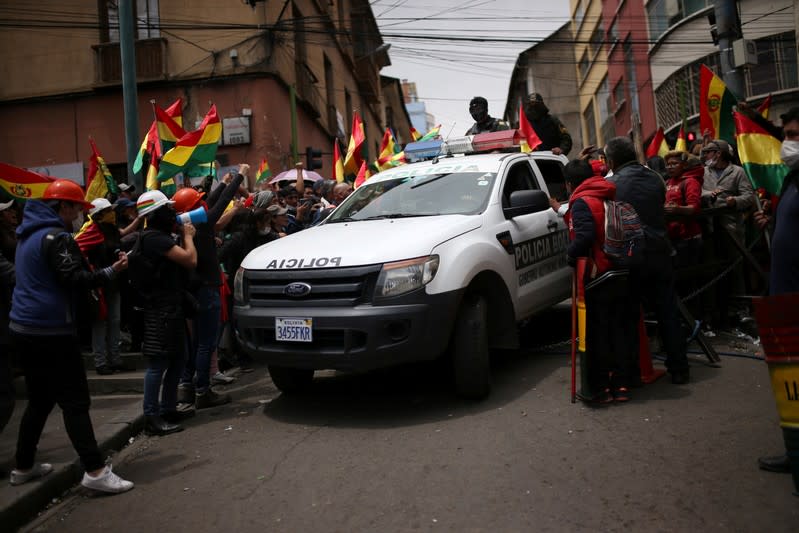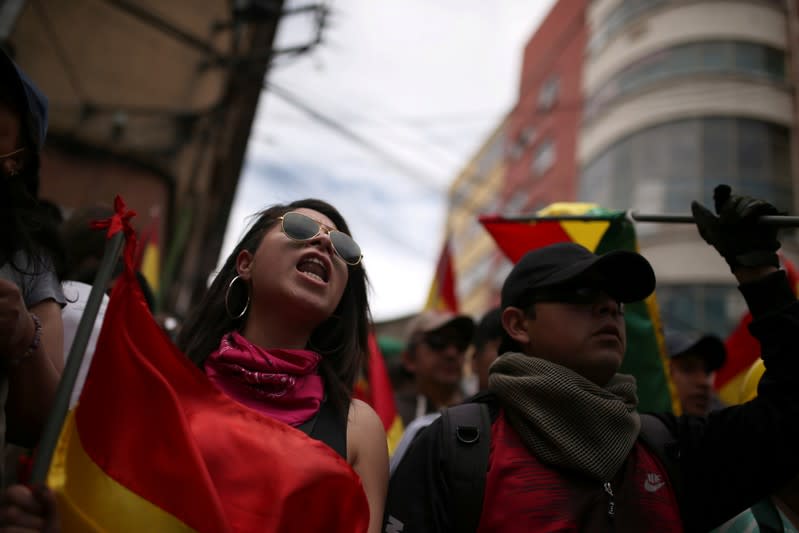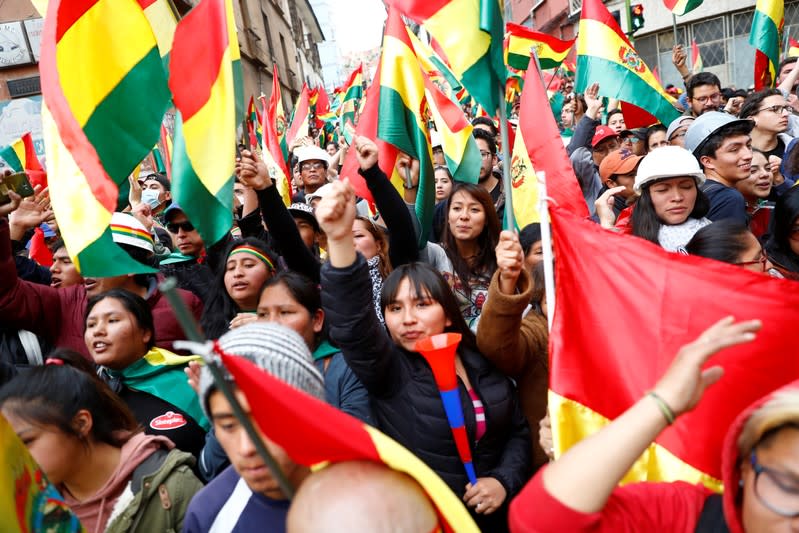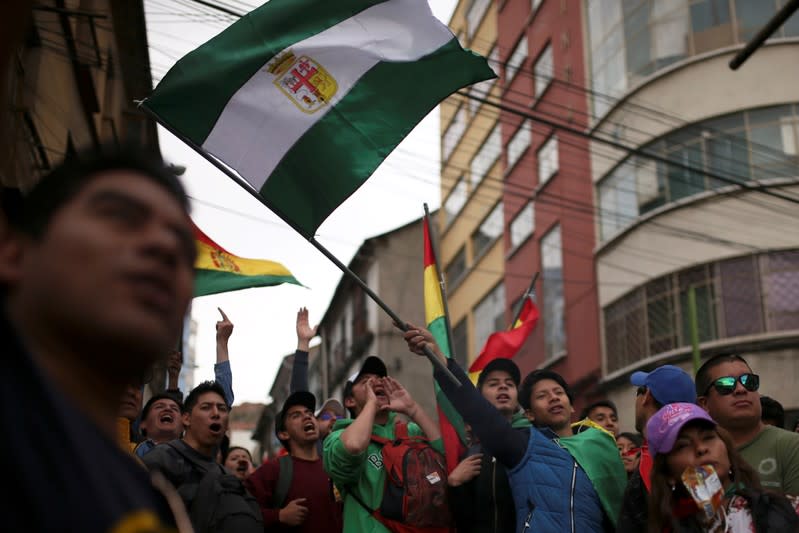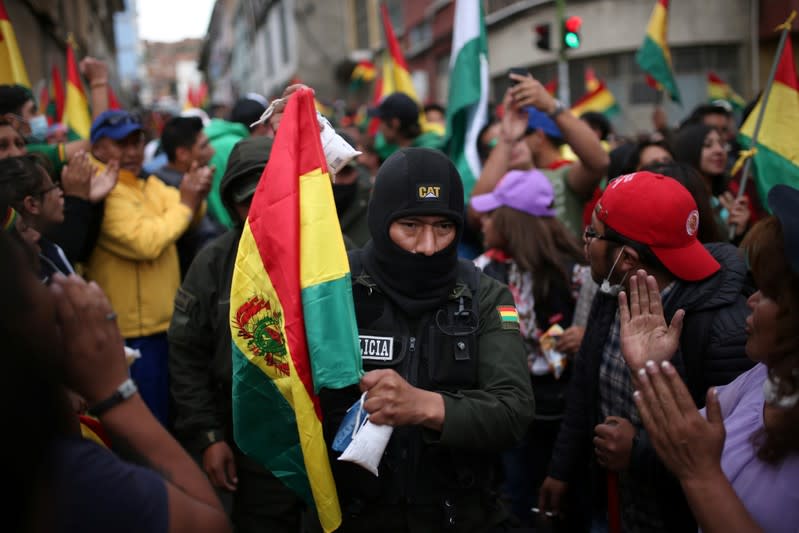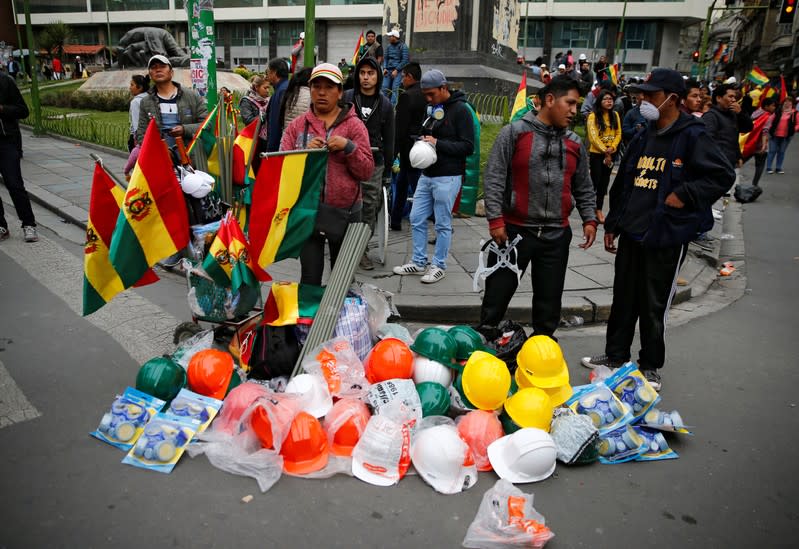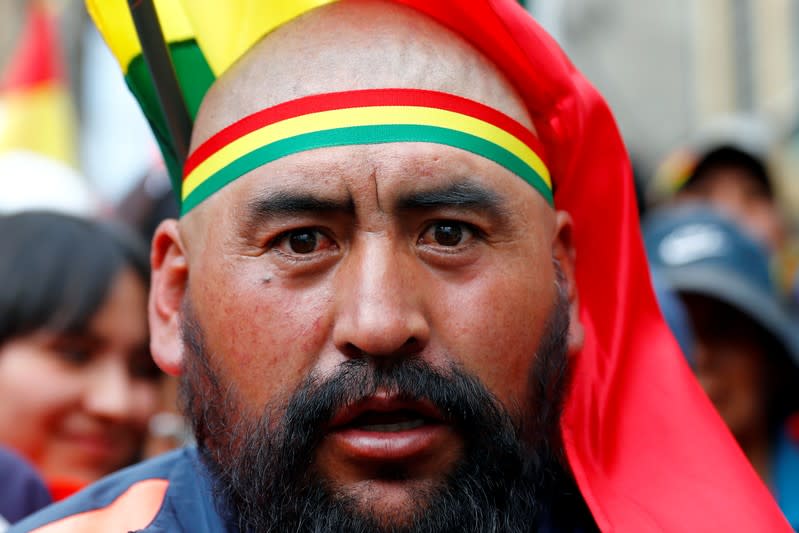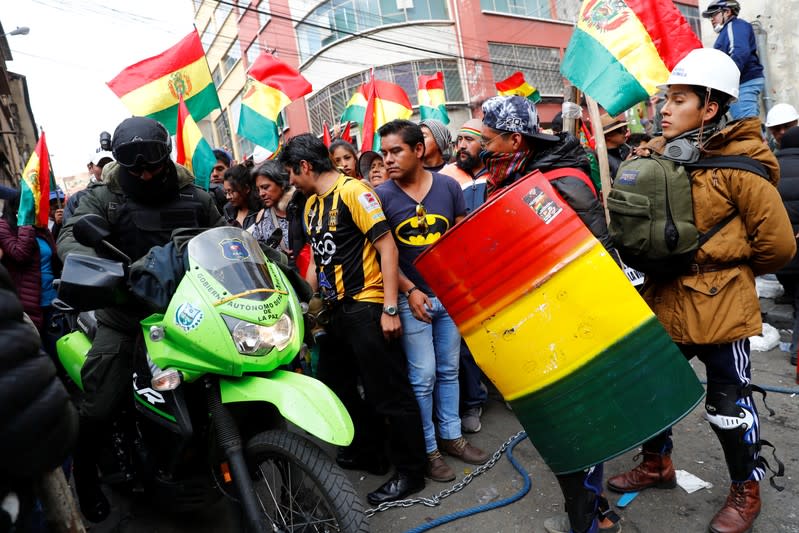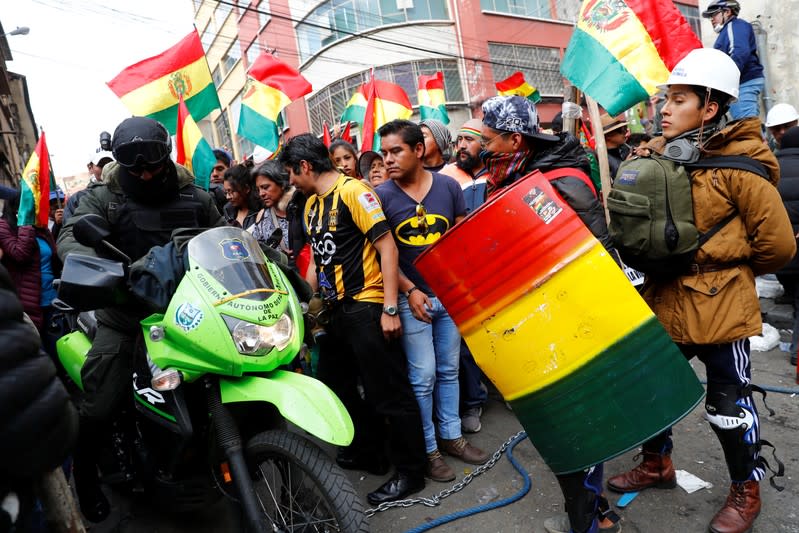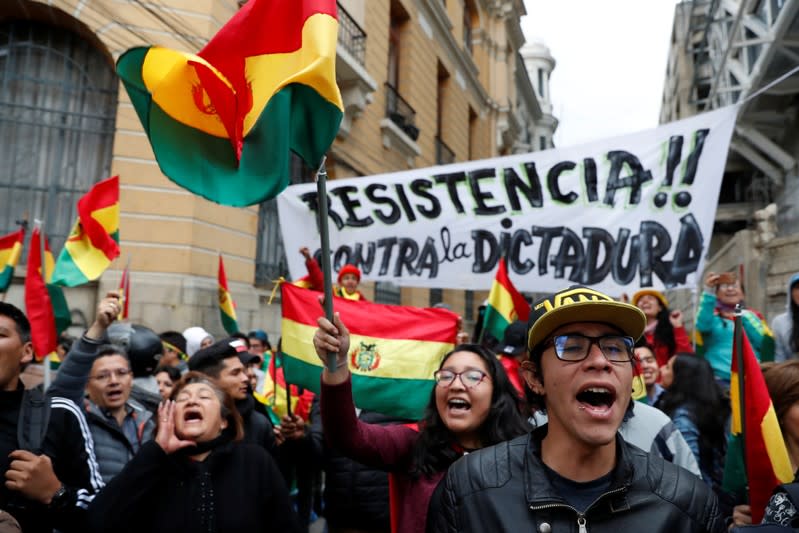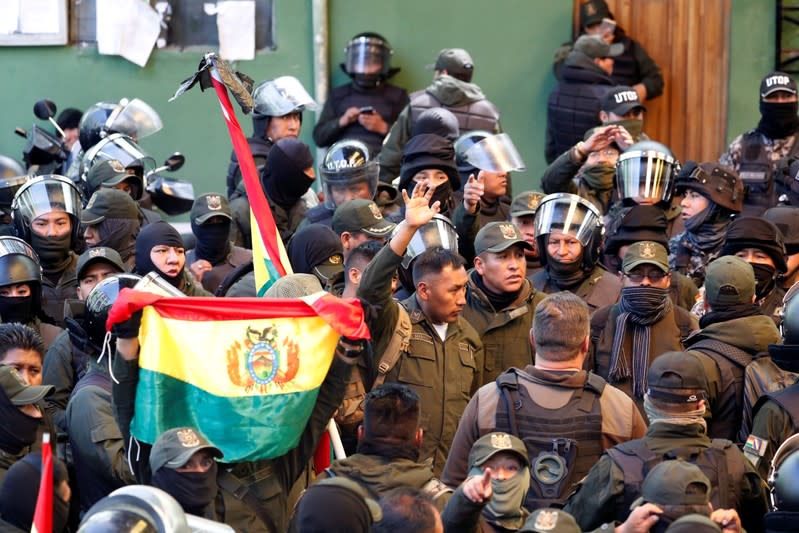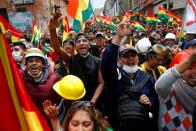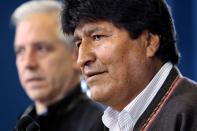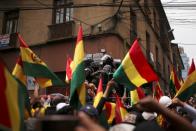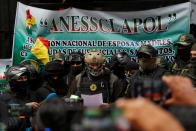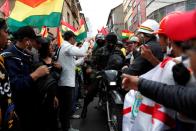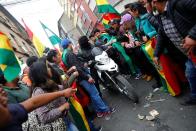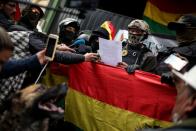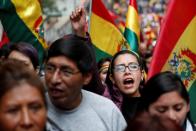Bolivia military says won't 'confront' the people as pressure on Morales builds
By Daniel Ramos
LA PAZ (Reuters) - President Evo Morales faced rising pressure to resolve a weeks-long standoff over Bolivia's disputed election on Saturday after police forces were seen joining anti-government protests and the military said it would not "confront the people" over the issue.
Morales' government decried a "coup" against him by what it called "violent groups," prompting a number of fellow leftist leaders in the region to rally around him and call for a peaceful resolution to the crisis.
Morales, Latin America's longest-standing leader, won an election on Oct. 20, but a delay of nearly a day in the vote count sparked allegations of fraud and led to protests, strikes and road blocks.
On Friday night and Saturday, local television showed and Reuters reporters witnessed police in several Bolivian cities marching alongside protesters in apparent acts of disobedience and joining chants regularly used by the opposition.
Adding to the pressure on Morales, the Armed Forces said in a statement on Saturday "that we will never confront the people to whom we have a duty and we will always ensure peace, coexistence and the development of our homeland."
"We are in decisive days and even hours for the destiny of the country," Carlos Mesa, the runner-up in the October vote, told reporters.
In a tweet in the early hours of Saturday, Morales repeated accusations that the opposition was organizing a coup against the state. The foreign ministry released a statement saying some police officers had "abandoned their constitutional role of ensuring the security of society and state institutions".
At a news conference later in the day, Morales called an urgent meeting with the four political parties represented in parliament. By Saturday afternoon, at least two opposition parties had rejected Morales' invitation and one had accepted.
The president said he would also invite international organizations including the Vatican, the United Nations and the Organization of American States (OAS), which is conducting an audit of the election.
Mesa and Luis Fernando Camacho, a civic leader from the eastern city of Santa Cruz who has become a symbol of the opposition, reiterated their calls for Morales - the country's leader since 2006 - to step down.
"What we want here is to unite all Bolivians in a single cause. We want President Evo Morales to leave," said Camacho, who plans to lead a march to the government palace on Monday with a symbolic resignation letter for the president to sign.
Amid ongoing clashes between pro- and anti-government supporters, the European Union said that "violence must be avoided" as it would not help solve the crisis.
"The solution can only be achieved through peaceful negotiations, a credible electoral process that guarantees respect for popular will and strong democratic institutions," it said in a statement.
A number of left-leaning leaders in the region backed Morales on Saturday, including Venezuela, Cuba, Mexico and Argentina's Peronist President-elect Alberto Fernandez.
"For Mexico, democracy is the only way and replacing this process with force and violence means a setback," that country's foreign ministry said in a statement. "The Government of Mexico urges dialogue, as President Evo Morales has put it."
Venezuelan President Nicolas Maduro tweeted: "We denounce before the world the attempted coup d'etat in progress against the brother President Evo Morales."
(Reporting by Daniel Ramos; Additional reporting by Sharay Angulo in Mexico City; Writing by Cassandra Garrison; Editing by Frances Kerry, Andrea Ricci and Sonya Hepinstall)


